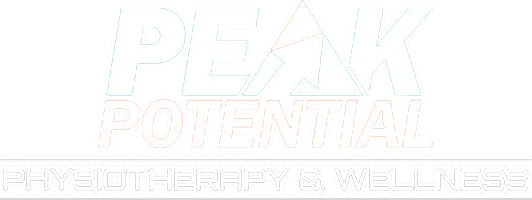Speed Training In Collierville, TN

Get Faster and More Efficient with Speed Training in Memphis & Collierville, TN
Have your running times plateaued? Want to get your speed back but don’t know where to start? At Peak Potential Physiotherapy & Wellness, our physical therapists specialize in detailed speed training programs tailored to help athletes and weekend warriors alike improve performance, prevent injury, and regain confidence in their ability. Our customized speed training targets the factors holding you back from faster run times and more efficient form. We create personalized plans incorporating technique drills, plyometrics, balance exercises, and more to enhance your speed, power output, and running efficiency. Our goal isn’t just to help you run incrementally faster – it’s to optimize and ingrain proper mechanics so you can continue shaving time off your runs even after “gradating” from our program.
Who Can Benefit from Speed Training with a Physical Therapist?
If you played sports growing up and want to regain the cardiovascular endurance and running form of your youth, speed training is for you. Our programs cater to both current competitive athletes looking to gain an extra edge as well as weekend warriors in their 30s, 40s or 50s hoping to reclaim fitness.
Men and women aged 18-55 who:
- Recently completed a marathon, half marathon, or other endurance event but didn’t meet their time goal
- Want to improve running economy and efficiency to help shave minutes off their 5K, 10K, half marathon times
- Are recovering from an injury and need help rebuilding cardiovascular endurance and speed
- Played a sport like soccer, lacrosse, football, basketball in high school or college and want to regain fitness
- Feel their running form needs work and want to fix imbalances before they cause an overuse injury
If you recognize yourself in one or more items on this list, our tailored speed training program can get you back on track towards hitting your goals.
How Speed Training in Memphis & Collierville, TN with a Physical Therapist Improves Performance
Speed training goes far beyond simple sprint intervals on the track. Our physical therapists utilize an array of assessments, exercises, and drills to target the specific factors holding you back from better efficiency and faster race times. After a thorough evaluation of your running mechanics, strength, range of motion, and movement patterns, we get to work correcting muscle imbalances, posture issues, lack of power, and technique flaws sabotaging your progress.
You’ll leave each session with a customized “prescription” of exercises and drills to ingrain better neuromuscular patterns for running. We’ll progress your program appropriately as your speed and skill improves over the 8-12 weeks. Here are some of the biggest benefits our athletes experience from our speed training programs:
1. Increased Speed and Running Efficiency
The entire program focuses on pinpointing and improving the specific biomechanical factors tied to faster run splits. Depending on your evaluation, this may include:
- Enhancing hip and ankle mobility to enable longer stride length
- Building leg strength to produce more power off the ground
- Improving running posture and arm swing for better form
- Increasing stride rate through quicker turnover drills
- Re-patterning movement dysfunction causing excess braking forces
You’ll perform technique-focused exercises between sessions to ingrain positive adjustments. Our patients typically drop significant time off their mile pace and run more effortlessly at prior speeds.
2. More Power and Optimal Running Mechanics
Physical limitations like weak glutes and tight hip flexors often hamper a runner’s speed. Our assessments identify strength and range of motion deficits in areas essential for propulsion.
We’ll prescribe targeted exercises to fix such imbalances before they sap power from your stride or worse – cause an injury. You’ll perform plyometric and multi-plane movements focused on producing more force with each step. We also utilize real-time video analysis and cues during form drills to retrain poor mechanics developed from years of overuse. Changing bad habits is challenging, but patient feedback confirms it’s effective. Most runners feel their form is more efficient by 4 weeks into the program.
3. Reduced Risk of Injuries
Running is a highly repetitive activity imposing big stresses through hips, knees, ankles, and feet with each stride. Even small technique flaws and muscle imbalances add up over months and years, eventually causing an injury. We pinpoint areas you over or under utilize while running and correct these deficiencies. Flexibility training ensures you have the required mobility in key joints to move smoothly through a full gait cycle. Multi-directional exercises build support and resilience in areas commonly prone to runner’s knee, shin splints, Achilles tendinopathy, and stress fractures. Optimizing movement patterns now safeguards your progress so you can continue training injury-free.
4. Improved Running Motivation and Confidence
Losing speed over time can be demoralizing and zap enthusiasm for running. By identifying the roots of performance declines then addressing them through targeted training, we help restore confidence alongside fitness. As sessions progress and mechanics start to click, patients sense running becoming easier again. Speed metrics and video analysis provide concrete proof of improved technique. Reaching new milestones with each session builds motivation to keep progressing.
Regaining speed reinvigorates passion for running. Many patients tell us they feel like competitive athletes again, reminded that age and prior injuries don’t have to slow them down.
Frequently Asked Questions on Speed Training with a Physical Therapist
Can physical therapists really help my specific running form issues?
Yes, optimizing running mechanics tied to your unique weaknesses and goals is our specialty. Through in-depth movement assessments and gait analysis, we identify the exact factors limiting your speed and efficiency. We then prescribe targeted exercises between sessions to improve mobility in stiff joints, strengthen neglected muscle groups, enhance power output, and retrain flawed movement patterns. Video analysis and cueing ensures you learn to run with improved alignment, reciprocal arm swing, posture, and activation.
When during my training cycle should I focus on speed work with a PT?
We recommend scheduling speed training either before beginning a running program or after giving your body several weeks to adapt to current training loads. Beginning 4-8 weeks out from a major race or time trial gives enough lead time to ingrain new movement patterns. Prioritizing speed after an injury helps cautiously rebuild lost running economy and mechanics in a controlled manner under our guidance. Avoid introducing intense new intervals when already fatigued from high weekly mileage or other life stresses.
I already strength train on my own – so how will physical therapy help my running?
While gym routines build overall muscle mass, we focus exercises on improving the specific power and coordination required to run faster. For example, targeting weak hip abductors stabilizing the outside of your thigh with the appropriate volume and intensity for your needs.
We also personalize exercises to fix muscle imbalances throwing off your symmetry and mechanics. Traditional weight routines often overlook such left/right discrepancies increasing injury risk. Our tailored approach builds resilient, supple running muscles that contract smoothly and powerfully in coordinated sequence stride after stride.
Learn Proper Speed Training from Our Experts in Memphis & Collierville, TN
Complimentary consultations are available to determine if our customized speed training can help you meet your running goals this season. We also accept referrals from physicians, individual athletes, marathon training groups, high school athletic programs, and weekend warrior clubs. Reach out via phone or our online contact form to schedule a consultation.
Next Steps for Improving Your Speed and Efficiency
Don’t let past injuries, age, or frustrating speed plateaus deter you from achieving your running goals. Our personalized speed training programs target the root factors slowing you down. Through expert coaching, video gait analysis, and tailored exercises, our therapists ingrain the movement patterns, power, and mechanics enabling major time drops.
We offer flexible morning and evening appointments to accommodate your work and family life. Most insurances cover some or all of our services with physician referral. Contact us today to book a consultation, movement assessment, and begin your speed training journey!
About The Author
Dr. Trevor Ling, PT, DPT, empowers patients to unlock their full potential in Orthopedic and Sports Physical Therapy. Years of experience fuels their passion for helping individuals reclaim vibrant lives. At Peak Potential Physiotherapy & Wellnessin Collierville, TN, Dr. Trevor Ling combines innovative techniques with personalized care, tackling a broad spectrum of physical challenges.

